AND EVENTS


WHAT’S INSIDE







Ireland has committed to cutting greenhouse gas emissions in half by 2030 and to achieving net-zero emissions by 2050. Fáilte Ireland has called out Driving Climate Action as a strategic priority. Driving Climate Action aims to contribute to the delivery of targets set by government and to ensure tourism plays its part in reducing greenhouse gas emissions.

Meetings and events usually involve travel, food consumption and the production of waste so they can have a significant carbon impact. There is a need to proactively address events-related greenhouse gas emissions. As a result, Climate Action is now a priority consideration for event planners and organisers around the world.
A climate-friendly meeting or event incorporates environmental considerations throughout all stages of the meeting to minimise its impact on the environment.
In this guide we outline those considerations with some advice and inspiration around client considerations and how to meet them.
Let’s get started.
THE ACTIONS IN THIS GUIDE CONTRIBUTE TO THE FOLLOWING SUSTAINABLE DEVELOPMENT GOALS (SDGS).
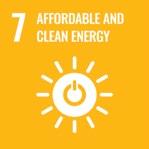
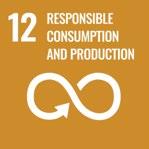
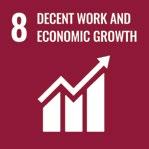
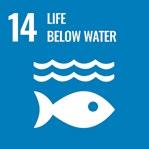
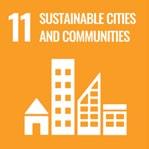
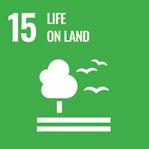
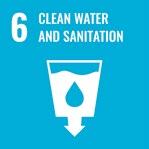
This useful Carbon Calculator can help you establish the carbon footprint of your business. Find out about the Climate Toolkit 4 Business here
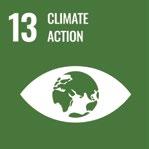
This guide serves to highlight client considerations and how you can best prepare to meet them.
This guide is for any tourism and hospitality business that
supplies products and services to professional meeting and event planners, including:
1 Hotel and accommodation providers.
2 Venues (stand-alone or venues within hotels).
3 Caterers (in-house, contract, food and drink suppliers).
4 Transportation providers (air, car, rail, bus).
5 IT/AV (sound, lighting, computer, video).
For more ideas to engage your team and sustain momentum, check out the guide: How To Tell Your Climate Action Story

There are many types of meeting and event planners you will work with as a supplier:
individual tasked with organising an event on behalf of their organisation.
venue executive who plans and organises an event on behalf of a client.
professional conference organiser (PCO) who manages large-scale international conferences.
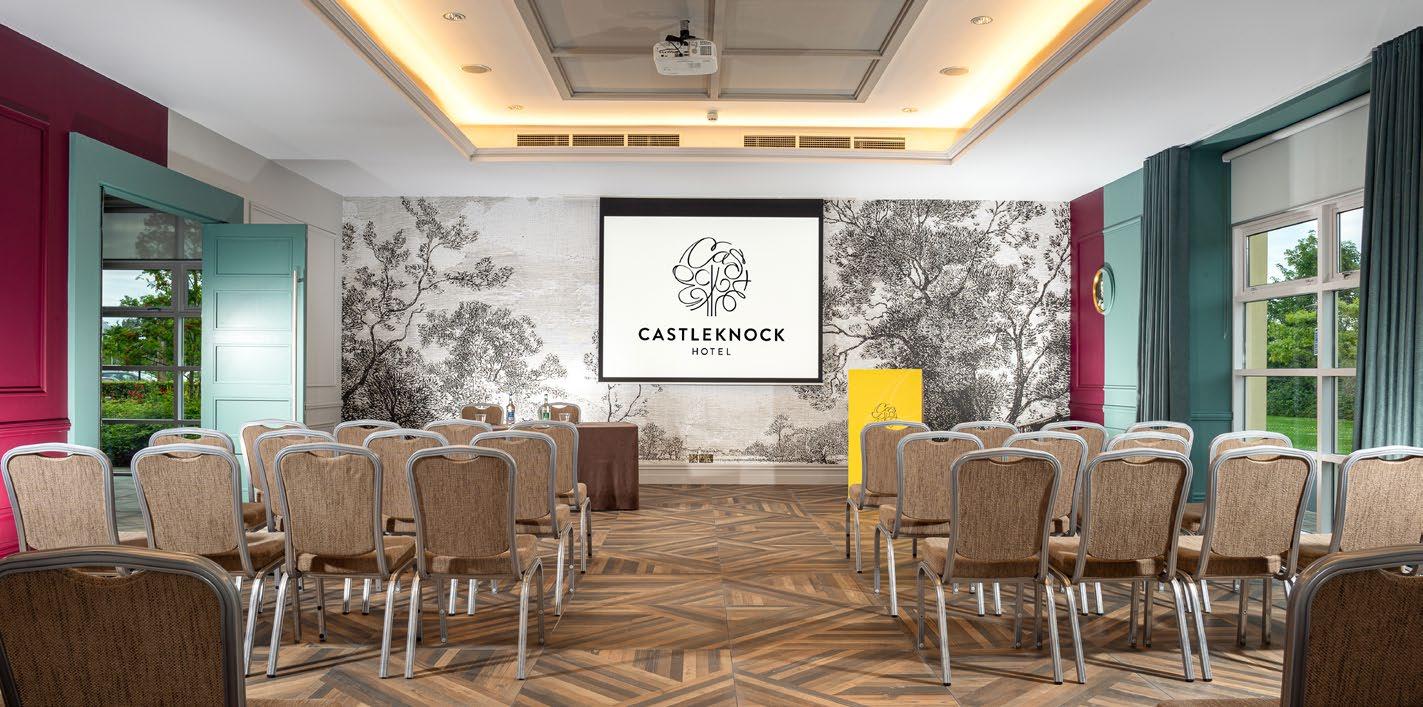
associations, event agencies, destination management companies (DMCs).
As a supplier, a critical success factor will be how you communicate your credibility in the area of Climate Action. To do this well, you need to initially implement good Climate Action practices within the day-to-day operation of your business.
This can be achieved by implementing a Climate Action Plan covering the key areas:
Energy Management
Water Management
Waste Management
Biodiversity
Carbon Offsetting
When planning a climate-friendly meeting or event, the following considerations are important to planners:
Identifying an energy-efficient venue
Conserving resources including water, energy and natural resources
Measuring and reducing travel and transport carbon footprint
Designing a minimal-waste event
Finding solutions for food waste
Managing delegate behaviour
Preserving and supporting biodiversity
Work with others in your destination. Meeting and event planners need an ecosystem of suppliers in and close to their chosen venue. This means they may seek out a destination with strong sustainability credentials, and not just individual suppliers.
For example, The Global Destination Sustainability (GDS) Index is a leading sustainability benchmarking and improvement programme for business tourism and events destinations. 68 destinations around the world are indexed and ranked on performance, with each committed to ongoing improvement. Dublin, Cork, Kerry, Limerick, Clare and Galway, all feature on the 2021 GDS-Index, thereby demonstrating that they are Irish destinations taking action on sustainability.
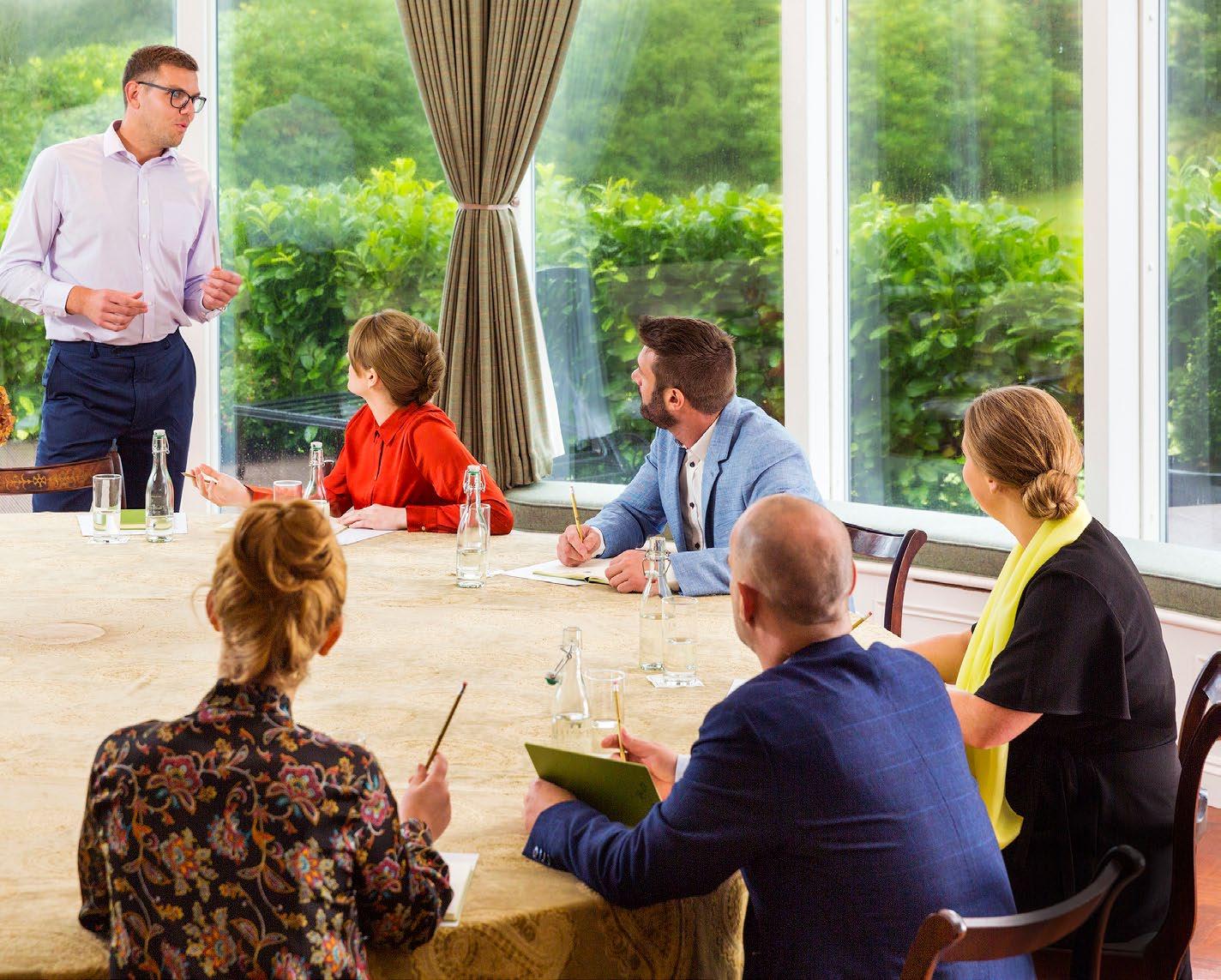
Event Planners rely on a host of stakeholders to help them meet their Climate Action objectives.
FROM SUPPLIERS?
Finding a network of credible suppliers and event partners within a single destination and close to their chosen venue is important. There needs to be a high level of trust between the parties. Event
planners will seek evidence and reassurance that suppliers really can support them in achieving their event’s climate goals.
EVENT PLANNERS MAY SEEK OUT SUPPLIERS WHO CAN SHOW
evidence of an active Climate Action Policy and Climate Action Strategy an independently verified certification that attests to good practice in this area
an understanding of the event’s Climate Action goals
a willingness to adapt and find solutions
an ability to gather and share data relating to the event’s carbon footprint, both before and after the event
an openness to engaging with other stakeholders to align all players with shared Climate Action goals
Croke Park was the first stadium in Ireland and Britain to secure both ISO 14001 (Environmental Management Systems) and ISO 20121 (Sustainable Event Management) standards. The stadium is currently striving towards ISO 50001 (Energy Management).
“The ISO process provides a great framework for our internal journey. Our international corporate clients are also reassured of our best practices in this area.”
Shauna Conroy, Business Development Executive, Croke Park.

The Green Team at Croke Park set itself a target of zero waste to landfill, which it achieved in 2014. At meetings and events, the following actions help to reduce single-use waste:
event organisers are offered the option of a paperless meeting
stationery is provided but is not automatically placed at each delegate seat
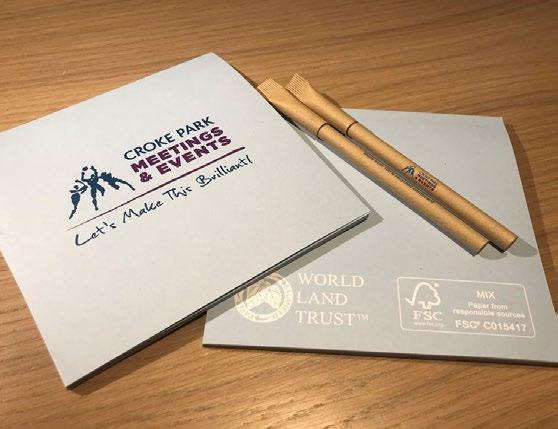
notepads are made of recyclable materials and pens are made from recycled cardboard
bottled in-house still and sparkling water is provided
single use cups and containers are 100% compostable
bins clearly communicate what items go in which bin
Clarify your client’s climate objectives for their event. Some events may have an objective to be carbon-neutral, others may wish to minimise waste or support the local economy, for example.
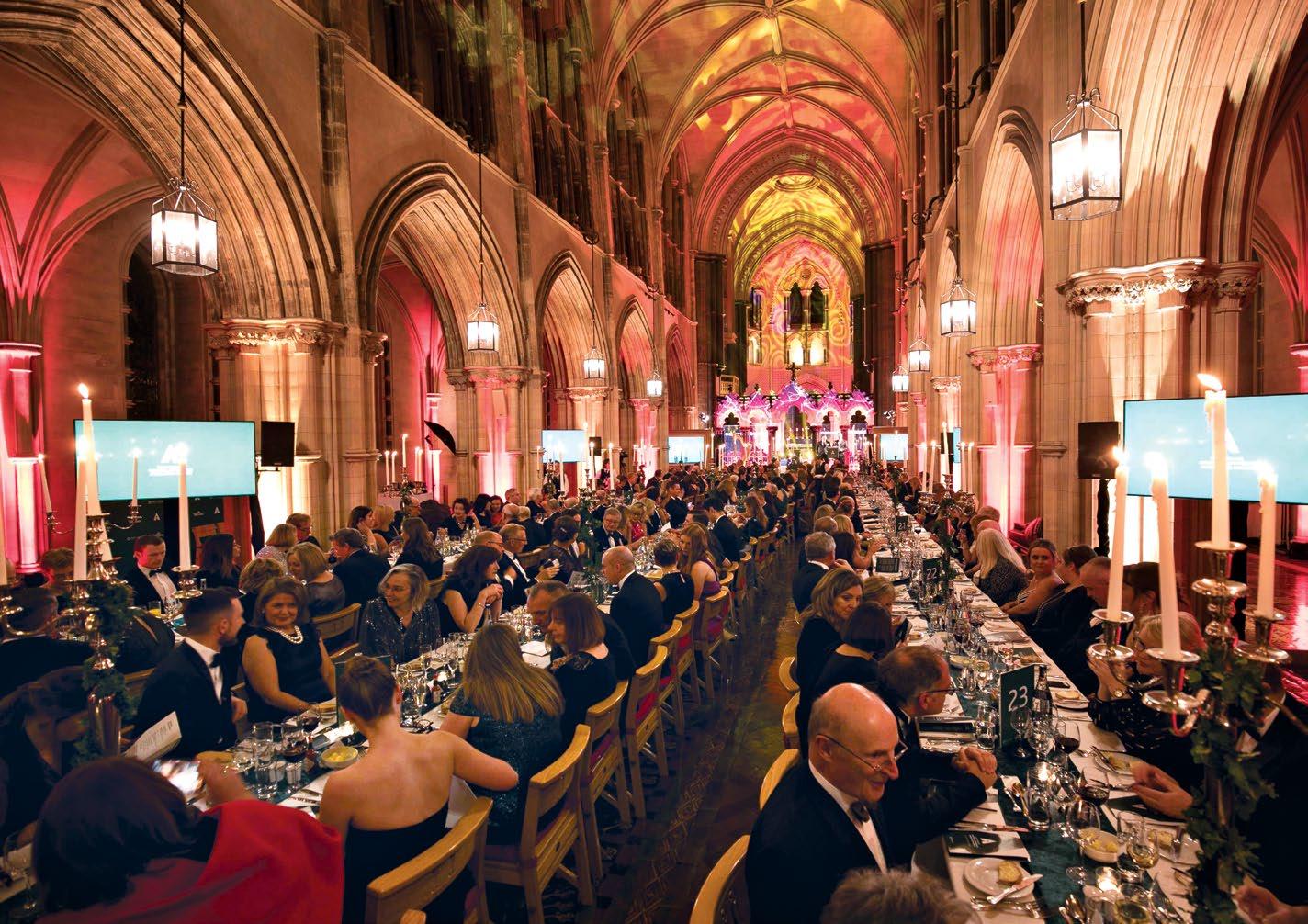
Understanding event planners’ key considerations will help you tailor your communications. You can reassure them that you understand their Climate Action goals and can articulate clearly how you can work with them to ensure they achieve them. The following sections outline the factors that influence the decisions of event planners.
Many factors impact on venue selection. From a Climate Action perspective, the main impact can be caused by carbon emissions associated
with transport to and from the venue. Environmental impact, resulting from any activities of the delegates, can be attributed to the overall environmental impacts of the event. Therefore, the environmental impact of accommodation will also be of concern to the event planner. Planners may prefer venues and accommodation providers that: have independently verified environmental certification
are located close to transportation hubs, railway stations, airports, etc., and that have good access to public transport
are located close to accommodation, restaurants,
and activities associated with the event (if these facilities are not provided at the event venue)
have a renewable source of electricity
have a demonstrated track record of energy conservation and water conservation
are committed to low waste or zero waste events, with facilities in place that support this are committed to minimising food waste
have a low or zero carbon footprint
have an active Environmental Management System
offer carbon-offsetting opportunities or connections
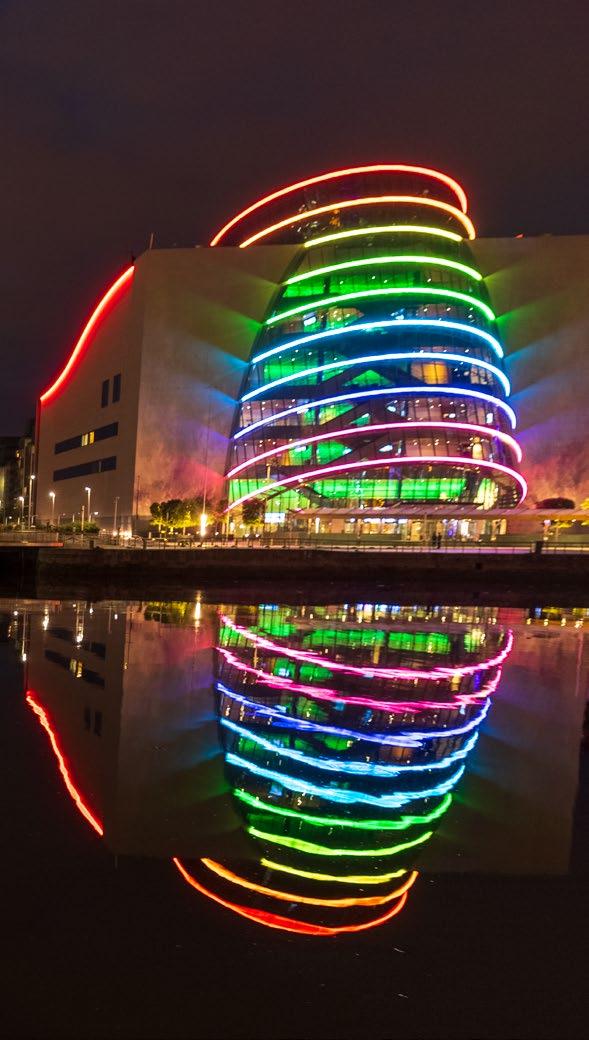
The Convention Centre Dublin (The CCD) was the first carbon neutral constructed convention centre and is one of Europe's most environmentally friendly venues. Holding both ISO 14001 and ISO 20121 and with a vision to become Ireland's most sustainable venue and a leader in sustainable event delivery, The CCD is committed to long-term sustainability and ongoing improvement in their business practices.
The venue uses 100% green electricity and has a proactive waste management strategy resulting in a consistent recycling rate of 98%. With a goal of reaching carbon neutrality by 2025, The CCD also offers clients the opportunity to offset all of their event carbon emissions for events held at the venue, alongside their carbon offsetting partners, Grown Forest.
The CCD also offers clients the opportunity to offset all of their event carbon emissions for events held at the venue, alongside their carbon offsetting partners, Grown Forest.
The CCD is a Gold Healthy Venue, having been the third venue in the world to achieve this accreditation, promising sustainable dishes, freshness and small farm economics, as well as promoting activity at all conferences and events. Single use plastic has been removed from their cash-catering offering, using green packaging instead. The CCD's goal is to eliminate all single use plastic from the venue by 2023.
Venues and accommodation providers that have developed benchmarks for their environmental management, will be able to contribute to more precise environmental impact assessment and carbon accounting.
For example, they will have information available on how many kWh of energy or litres of water their guests are using during their stay. This will in turn assist event planners to measure the overall environmental impact of the event.
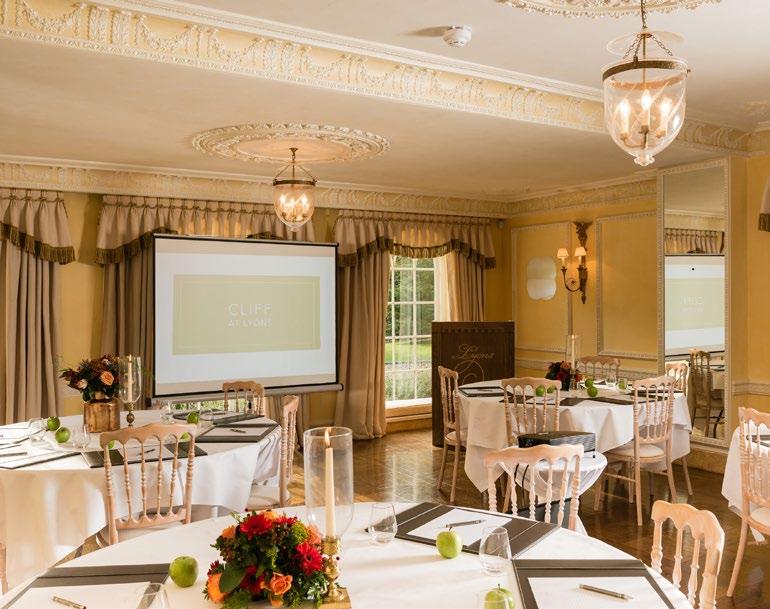
Catering operations include all aspects of food and beverage functions, provision of meals and refreshments, purchasing and delivery of food and beverage products, food preparation and service and disposal of waste generated by these operations.
Planners may prefer catering suppliers who: have independently verified environmental certification are located within the event centre or within close proximity to reduce transportation

use local, seasonal and/or organic produce support responsible purchasing (Fair-trade, Rainforest Alliance)
avoid the use of disposable items (cups, plates, tableware)
avoid single-use and single-portion items (sauces, jams, sugars)
offer a choice of vegetarian and/or plant-based options operate a waste prevention plan
A significant impact of a meeting or event can relate to transportation. Some events require the provision of shuttle services to and from accommodation, airports or rail stations. Event planners may prefer suppliers who: have independently verified environmental certification
are local to the event centre
use low emission vehicles have drivers trained in ecodriving as part of a structured approach to fuel and energy management
plan routes and shuttle services to limit travel distance use cold and recycled water for vehicle washing
offer vehicles that are
Top Tip
Work with event planners to get an accurate estimation of the number of participants to avoid food waste.
appropriately sized for the event requirements inspect and maintain vehicles according to the manufacturer’s instructions
Event planners may prefer suppliers who have independently verified environmental certification source products locally to avoid emissions from trucks or air travel
can demonstrate that they use energy efficient equipment offer the most energy efficient solutions where potential energy savings have clearly been considered
Have a switch off policy when equipment is not in use
Event Planners are likely to buy from suppliers that they believe are committed to supporting the environment. They also want reassurance that they are dealing with suppliers who will not expose the event to perceptions of greenwashing.

Five elements in particular will help you build your supplier credibility and reassure event planners that you can deliver the services required to run a successful climate-friendly meeting or event.
1 A documented Climate Action Policy
2 A documented Climate Action Plan
3 Independently verified environmental certification
4 A verifiable track record of achievement in managing the carbon footprint of your business (through initiatives relating to the conservation of energy and water, the management and reduction of waste, support of biodiversity and appropriate investment in carbon off-setting)
5 A broader engagement with the Global Sustainable Development Goals demonstrating commitment to delivering social, community and economic benefit
Consult the other guides in this series for more detailed guidelines to help you in these areas, see Page 12.
WHAT IS GREENWASHING?
Greenwashing is when a company claims, through its marketing communications, to be more environmentally conscious and responsible than it actually is in practice. Greenwashing misleads customers through exaggerated claims of the environmental benefits that derive from products, services or company actions.
Check out these supports and resources to help you on your Climate Action journey.
Check out a comprehensive range of Climate Action and business supports and resources for the Irish tourism industry. Find out more
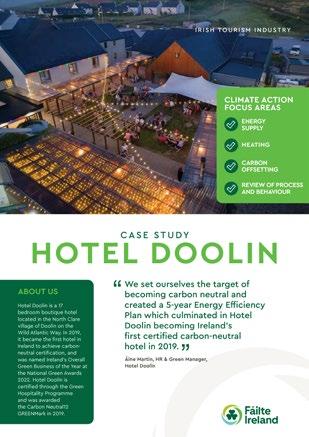
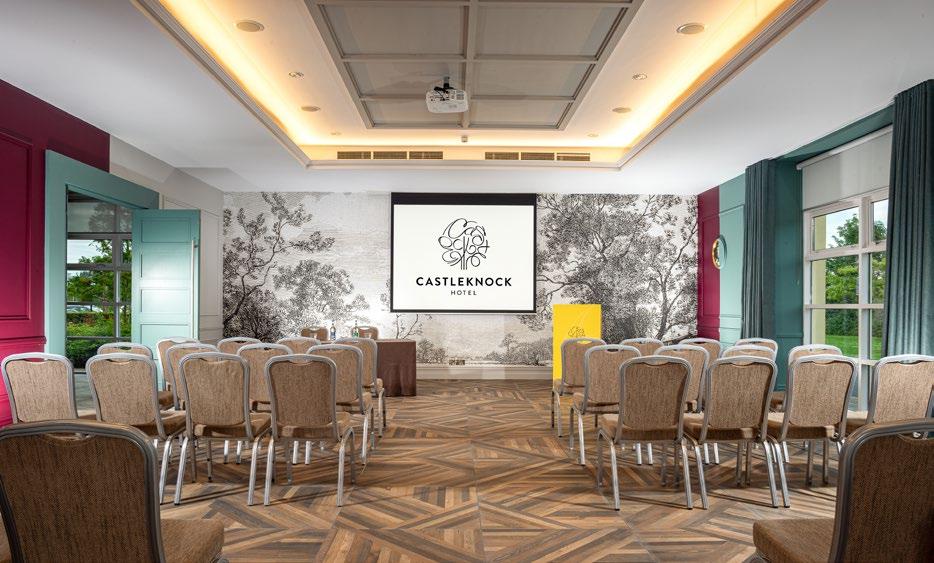
Learn about the best practices and standards for sustainability in the events industry. Learn more
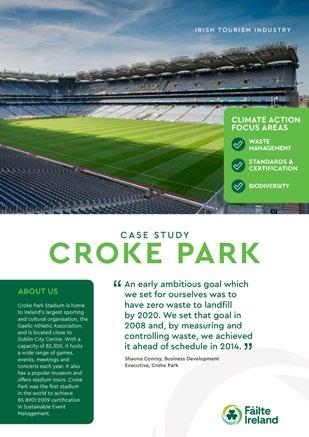
Learn from Irish and international businesses about their Climate Action journey. Get inspiration and top tips.
Explore our series of guides as part of Fáilte Ireland’s Driving Action on Climate Change in tourism businesses. You can find links to all the others in the series to help you on your climate action journey here.
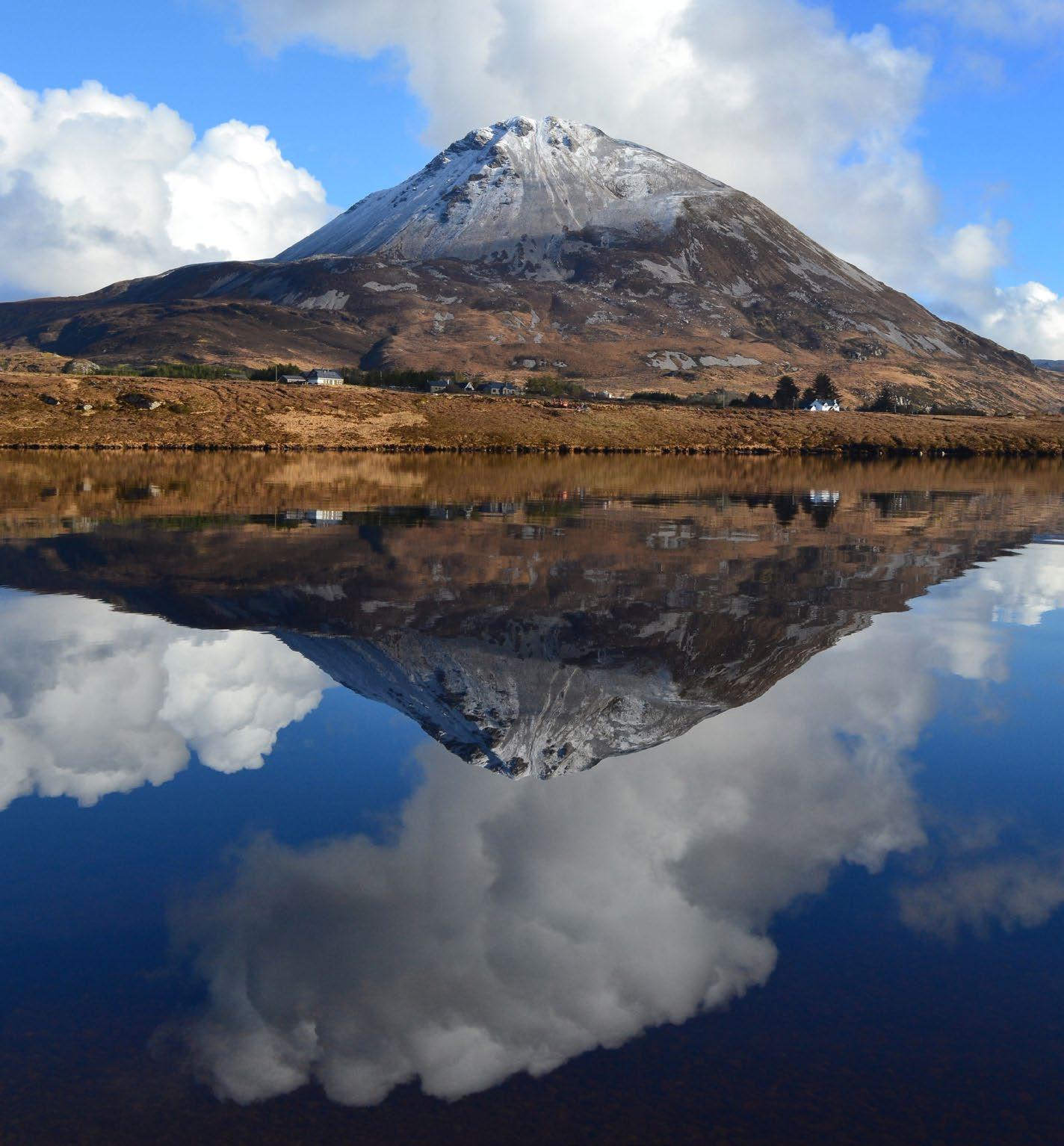
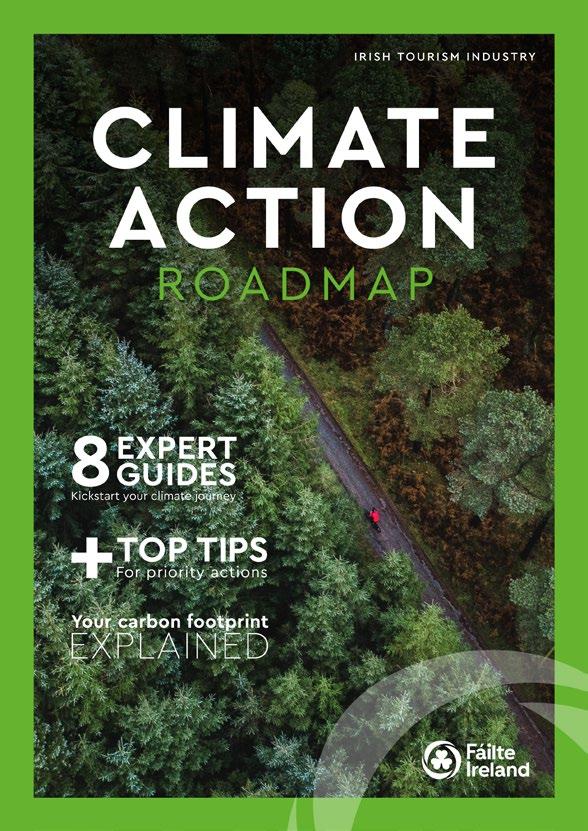
Explore our key tool designed to help you navigate the climate action journey of cost and carbon reduction.
Just click on the covers below to access each guide in our series.
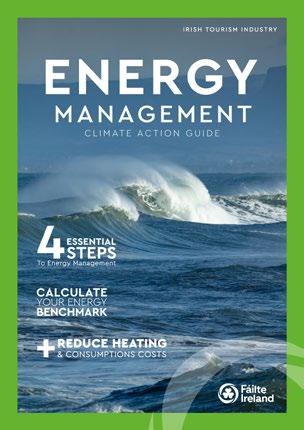
Learn how minimising energy consumption using renewable energy alternatives will save costs and reduce carbon emissions.
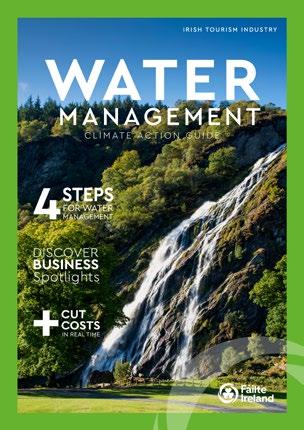
Explore our guide for suggestions on how your business can reduce water consumption, resulting in a lower water bill.
Find out how waste management can reduce your carbon footprint which can directly lead to cost-savings.
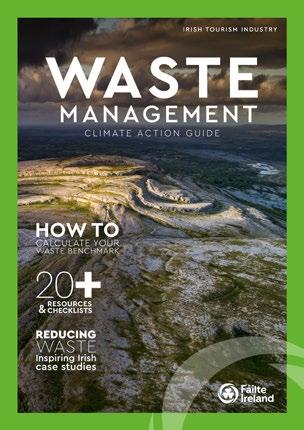

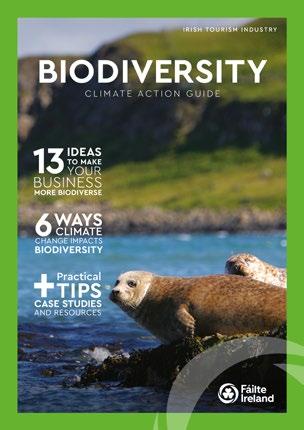
Learn how to promote your Climate Action initiatives to the consumer.
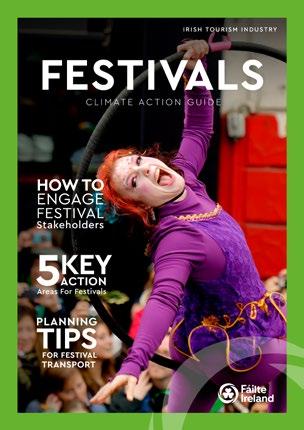

Read our advice for tourism businesses who wish to complement their reduction strategies by offsetting emissions.
Find out how enhancing biodiversity in your business or location is a great place to start actioning climate change.
Discover more about the importance of festivals for climate action from applying influence and inspiration to engaging with audiences.
